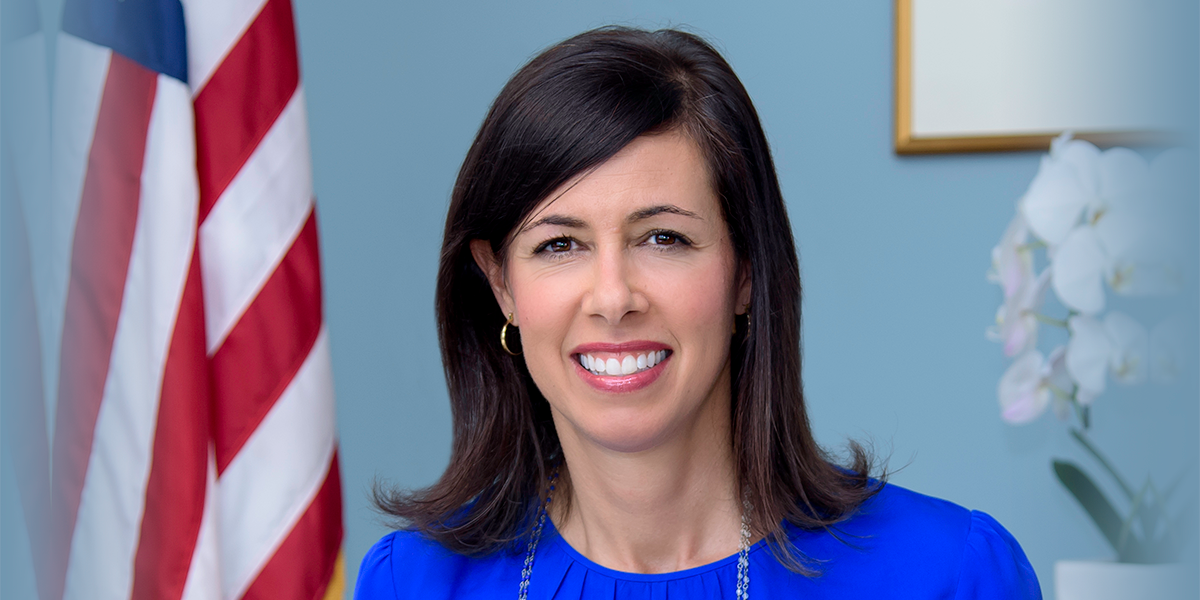
Photo: FCC
FCC awards $73 million to boost uptake of Affordable Connectivity Program
16 March 2023
by Sarah Wray
The Federal Communications Commission (FCC) has awarded US$66 million in outreach grants to almost 200 US cities and community groups to drive enrolment in the Affordable Connectivity Program (ACP).
An additional US$7.5 million was awarded for two pilot programmes to test outreach methods to federal housing communities and work with trusted third parties to help people complete and submit an ACP application.
FCC Chair Jessica Rosenworcel called the benefit the “largest broadband affordability programme in the nation’s history” but so far only around a third of those estimated to be eligible have accessed the ACP.
In addition, some have raised concerns about uncertainty over how long the funding for the US$14.25 billion programme will last.
Created under the Bipartisan Infrastructure Law, the ACP provides a discount of up to US$30 per month toward internet service for eligible households and up to US$75 per month for households on qualifying Tribal lands. In many cases, the benefit means families can receive internet services at no cost. Eligible households can also receive a one-time discount of up to US$100 to purchase a laptop, desktop computer, or tablet from participating providers.
The FCC reviewed 350 grant applications for the ACP outreach grants and selected 197 applicants from 50 states and territories for outreach projects such as digital campaigns, door-to-door canvassing, direct mail, and events.
Cities that received grants include Dallas which received US$700,000. The city served as lead applicant in a collaborative application with Dallas County, Dallas Independent School District, and Dallas Housing Authority. The campaign will use a broad range of media strategies to drive attendance to in-person ACP enrolment events staffed by the city’s Digital Navigators Program.
The FCC also awarded US$1.6 million to five Chicago-based applicants, three of which are partners in the Chicago Connected programme and the city’s Digital Equity Coalition. These include the YMCA of Metropolitan Chicago, Chicago Public Schools, and a cohort of 11 community-based organisations led by SGA Youth & Family Services. The city said the two-year grant will kick off ACP outreach efforts, which was a key recommendation in its recently published Digital Equity Plan.
Other cities included Seattle (US$400,000), New Orleans (US$370,000) and Boston (US$250,000).
The long view
According to the Center on Poverty and Social Policy at Columbia University, an estimated 48.6 million households are eligible for the ACP.
Rosenworcel said over 16 million households have enrolled so far.
“That’s progress, but we want to do more to get out the word about this powerful programme and reach families that may not know about this benefit,” she said. “These outreach grants will help us expand awareness in more communities.”
Some are worried about how long the ACP support will continue.
Several projections have forecast that ACP funds could be exhausted in the first half of 2024.
Blair Levin, Nonresident Senior Fellow at Brookings Metro, said: “The end of the programme would be a disaster for families who generally have little savings or discretionary income and will suddenly face monthly broadband charges of $30 or more. It would also rob the broader economy of an opportunity to grow faster due to universal connectivity.”
Levin, who is a New Street Research analyst and former FCC official, added that ending the programme would also limit the “enormous potential” for savings in critical services that broadband can deliver, as well as creating problems for the Broadband Equity, Access and Deployment (BEAD) Program.
A spokesperson for the FCC told Cities Today: “The increasing demand for this programme demonstrates its importance and necessity for all eligible households across the country. We look forward to working with Congress on continuing these benefits for American consumers.”
They said that since May 2021, the Commission has given out over US$6.1 billion for discounted monthly internet service and a one-time device discount for a laptop, desktop or tablet.
“Our analysis of the enrolment data indicates that the ACP households are distributed between metropolitan and non-metropolitan areas similarly to how the U.S. population is distributed, demonstrating that uptake in the ACP is similar between urban and non-urban households, including those on Tribal lands,” the spokesperson said. “Households on qualifying Tribal lands are eligible for an enhanced benefit of up to $75 per month, and we see a growing number of Tribal households taking advantage of this enhanced benefit each week.”
The FCC also said it is planning to make improvements to the online consumer ACP application in the next few weeks.







